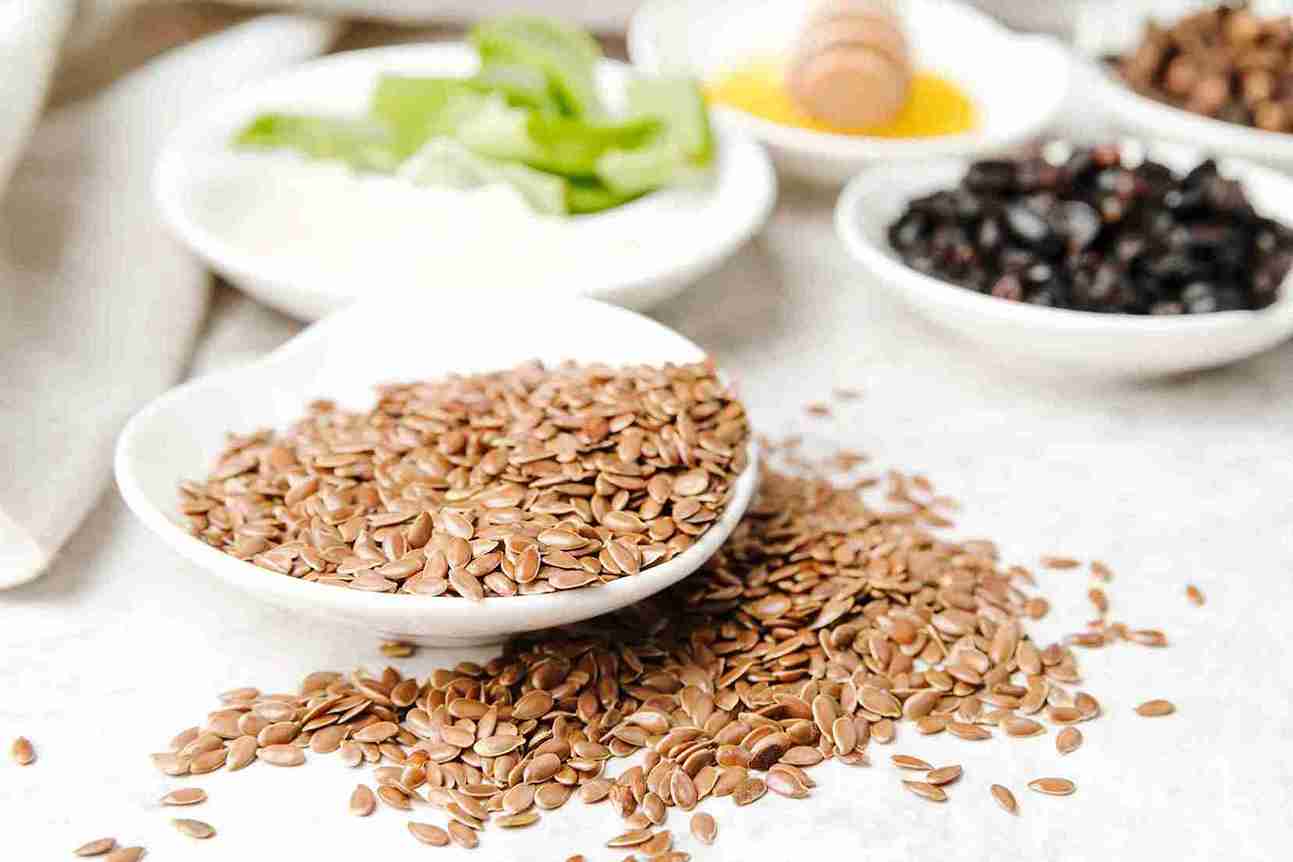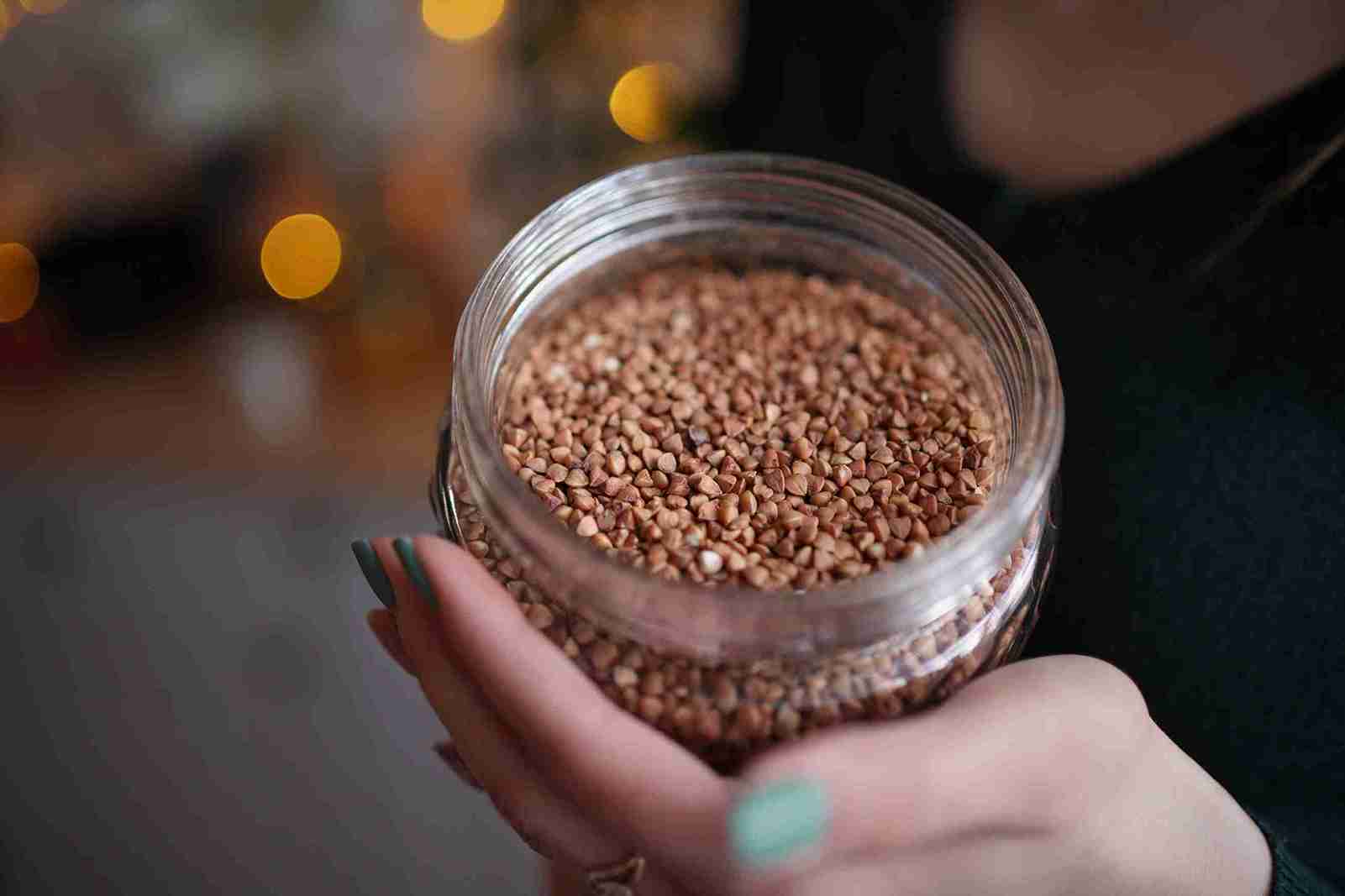
Flaxseeds have gained popularity for their numerous health benefits, from supporting heart health to aiding digestion. Many pregnant women, however, often wonder if incorporating flaxseeds into their diet is safe. In this article, we’ll explore the benefits of flax seeds during pregnancy, when and how to consume them, and the precautions to keep in mind.

Flaxseeds, or linseeds, are small, golden or brown seeds that are rich in nutrients.
Flaxseeds are a good source of dietary fibre, plant-based omega-3 fatty acid- Alpha-Linolenic Acid (ALA), and lignans that offer antioxidant benefits. The seeds are easy to include in food every day, making them an accessible superfood during pregnancy for mothers seeking to eat healthily.
Including flaxseeds during pregnancy can offer mothers the following benefits:
● Helps in digestion: Flaxseeds are a dietary source of fibre for maintaining regular bowel movement, which is often an issue during pregnancy.
● Provides critical fatty acids for neurological function: The omega-3 fatty acid contributes to brain function and neurological development.
● Helps maintain hormonal balance: The lignans in flaxseeds may help balance hormones.
● Enhance cardiovascular health: Dietary fibres and antioxidants may help manage cholesterol levels while minimising inflammatory processes.
Let’s understand how to eat flax seeds during pregnancy, to harness its benefits while avoiding any ill effects:
● Ground seed: The ground flaxseed allows for maximum uptake of nutrients and better digestion for absorption.
● Add to smoothies or yoghurt: You can easily incorporate ground flaxseed into your morning smoothies or as a topping on yoghurt.
● Add to cereal/oatmeal: add it as a topping to oatmeal, breakfast cereal combinations, or other grains to increase omega-3s and fibre.
● Use in baked goods: You can also use flaxseed in muffins, breads, and other baked goods.
Flax seeds in pregnancy, first trimester, are effective as they contain fibre and omega-3, which aid in digestion and overall well-being. But don't overdo it: excessive quantities could theoretically affect hormone levels because of lignans, so it's advisable to seek a physician's advice, particularly if there are complications or a history of miscarriage.

In the third trimester, gastrointestinal symptoms such as constipation tend to become more acute, which is why flaxseeds are especially beneficial. Ground flaxseeds can be used to enhance bowel regularity, alleviate inflammation, and improve overall health in general. However, use with caution if there is a history of preterm labour, as flaxseeds have weak uterotonic effects in large amounts. Visiting a healthcare practitioner ensures that flaxseeds are taken safely during the last few months of pregnancy.
Flaxseeds are mostly safe in moderation, but it is essential to be aware of the side effects of flaxseeds during pregnancy:
● Digestive discomfort: Excessive consumption will result in bloating, gas, or loose stools because of excessive fibre.
● Allergic reaction: In rare cases, allergic reactions can occur in some women.
● Interference with medications: Flaxseeds can influence the absorption and efficacy of medications, such as blood-thinning drugs.
To reduce risk, always introduce flaxseeds slowly and consult a healthcare professional before increasing intake substantially.
Picking the right health partner is key to a safe and informed pregnancy experience. Cloudnine differentiates itself by offering extensive reproductive health care, blending leading medical expertise with patient-centric care. From prenatal nutrition advice to special obstetricians and sophisticated diagnostics, Cloudnine provides complete support at each phase. Pregnant women are advised on food choices, such as superfoods like flaxseeds, so that they make safe and informed choices, favouring both the mother's and the baby's health.

Flaxseeds are a nutrient-dense supplement for a pregnancy diet, providing many benefits ranging from digestion to delivering crucial omega-3 fatty acids for the baby's brain growth. Knowledge of how to eat flax seeds in pregnancy, the duration of intake at various trimesters, and attention to side effects remains essential for safe consumption. Moderation and consultation with a medical practitioner are necessary for safely incorporating flaxseeds as part of a balanced and nutritious diet during pregnancy.

Yes, flaxseeds can be used safely while pregnant when they are taken in small portions and under the advice of a health practitioner.

Flaxseeds can cause mild stomach discomfort, occasional allergy, and may interact with some medications. Large amounts also affect hormone levels, so take it in moderation.

Flaxseeds have lignans, which have weak estrogenic effects. That is usually okay in small amounts, but it needs to be discussed with a physician if endocrine problems exist.

As of now, research indicates that moderate use of flaxseeds does not impact fertility in any way. They are consumed during pregnancy for their nutritional value.